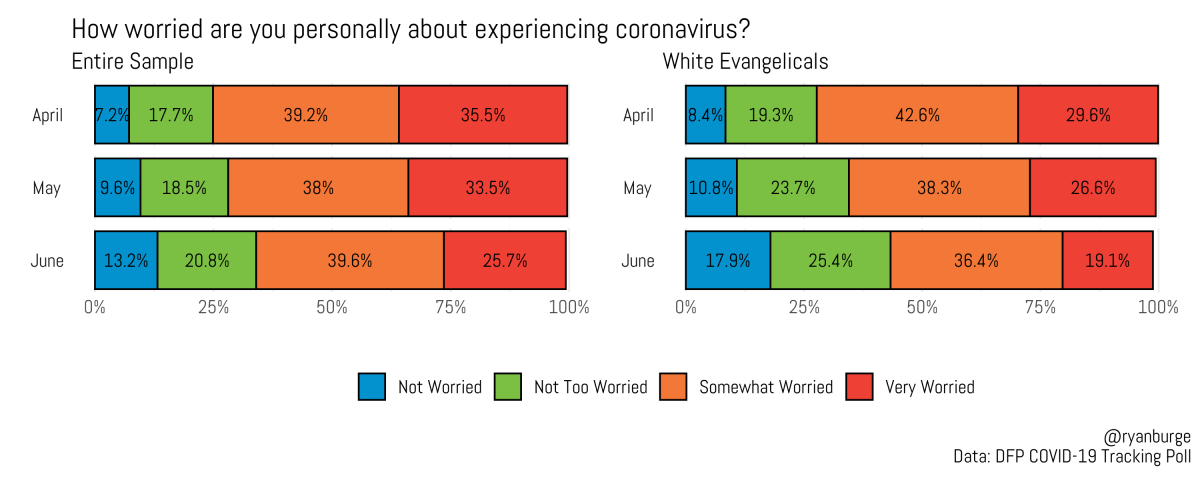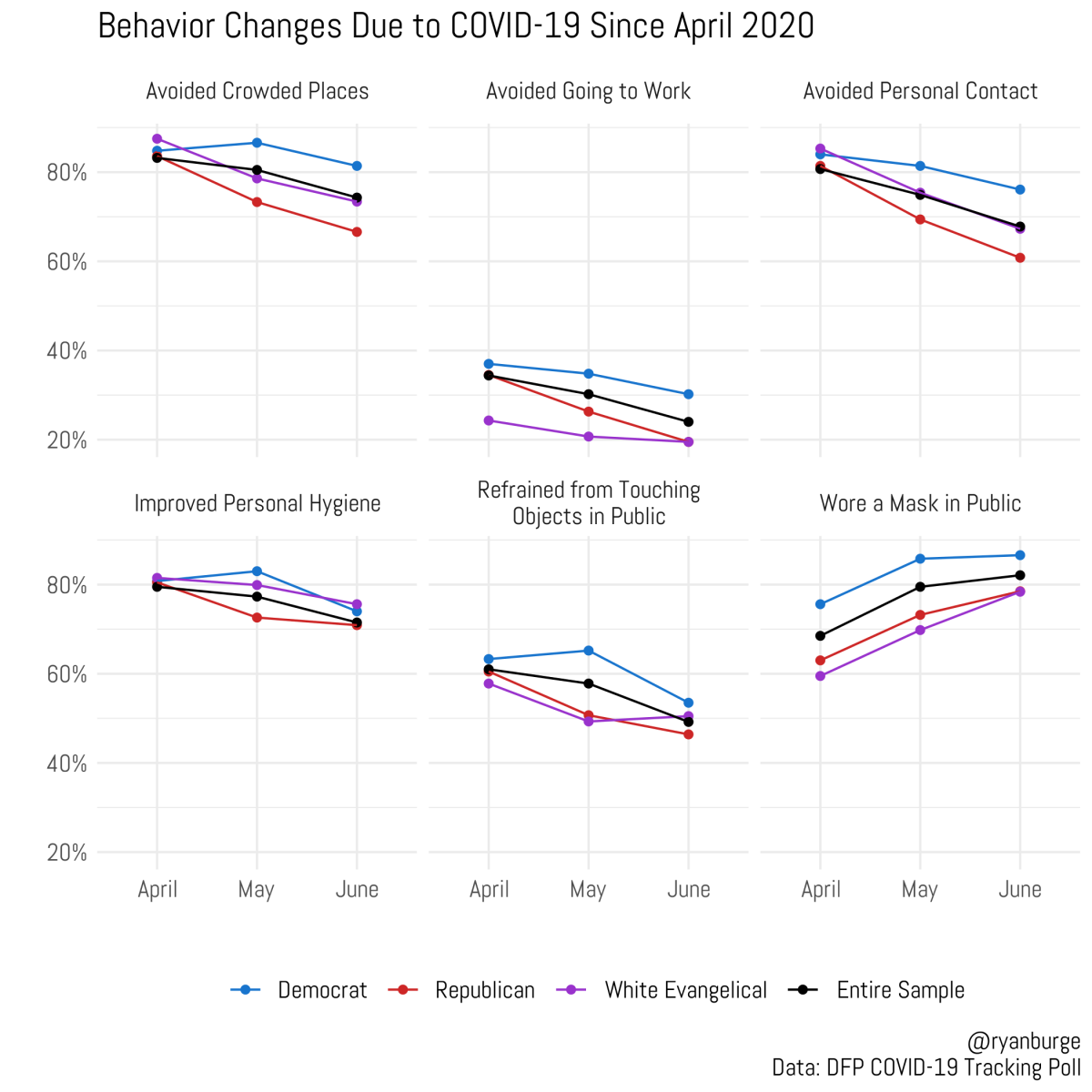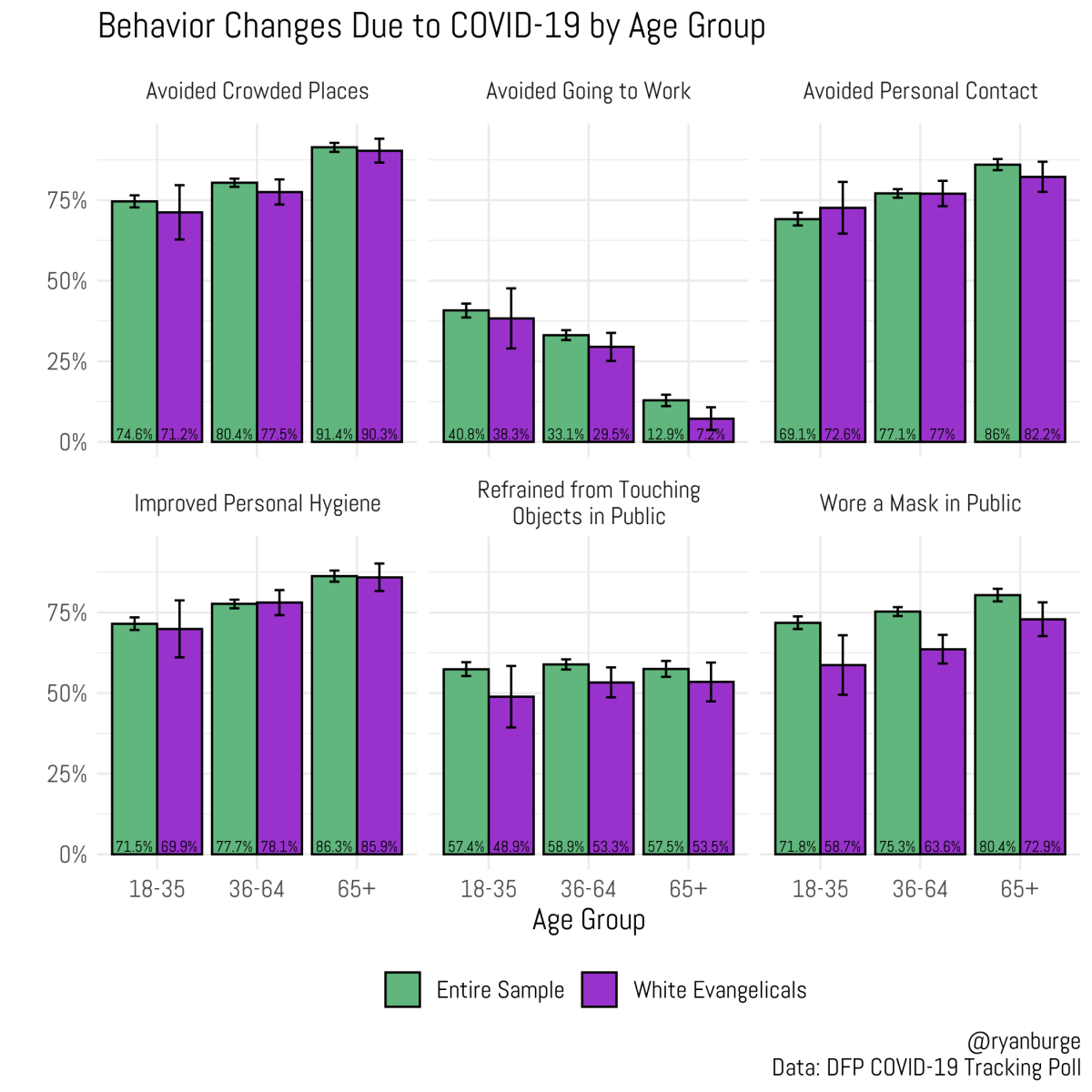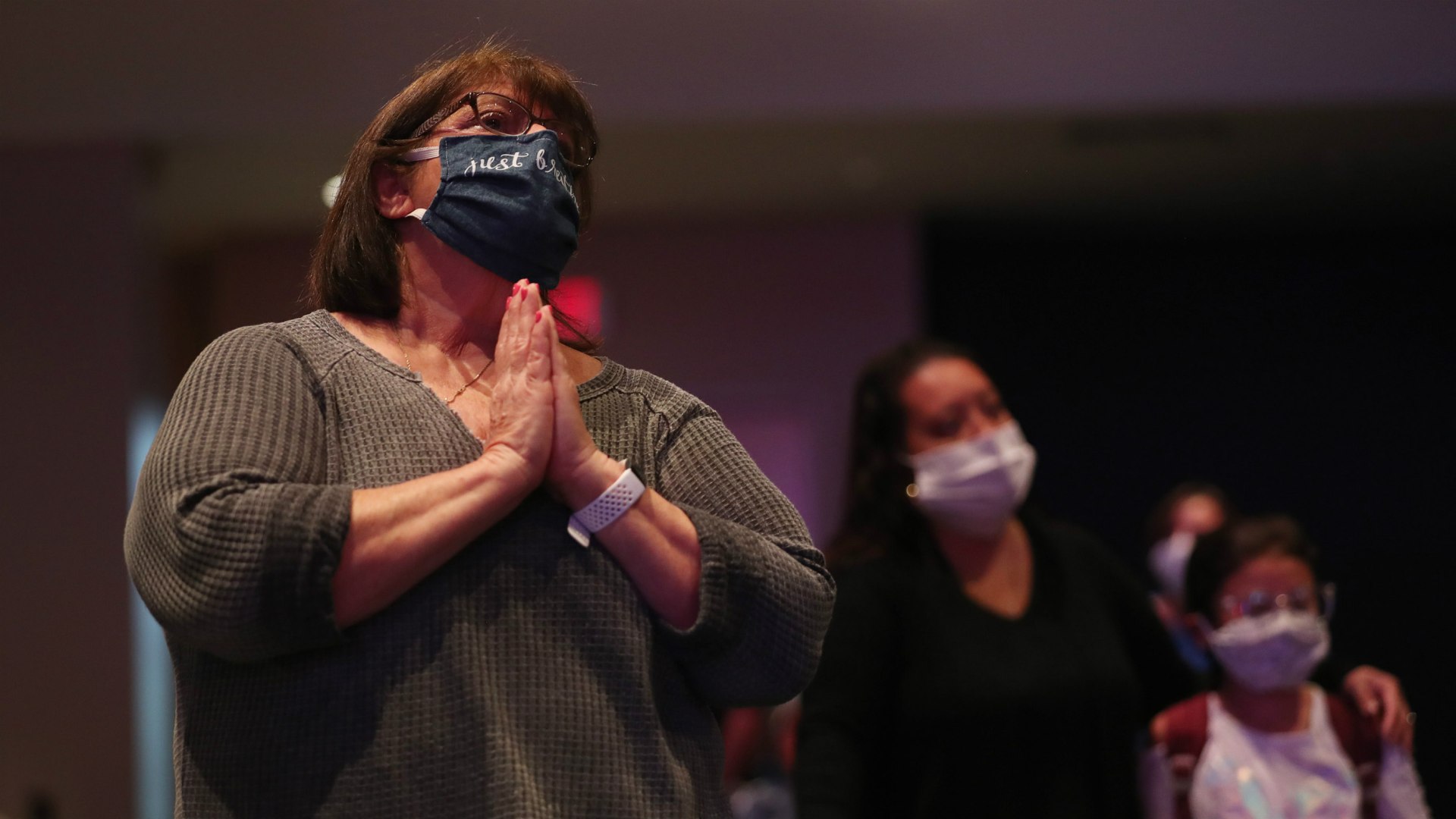In the months since the coronavirus pandemic hit the US, the country has become less worried about the disease and less likely to adhere to the public heath advice to slow its spread. But have those shifts been consistent across all Americans?Data from two months of weekly surveys finds that while compliance with behaviors is waning, the decline is especially acute among white evangelical Protestants.
White evangelicals more closely resembled the overall population earlier in the pandemic, according to findings released today from Data for Progress, a left-leaning think tank. But the gap between the two is widening.

In April, when New York City was reporting 4,000 new cases each day, three quarters of the public indicated that they were worried about contracting the coronavirus. Nearly the same share of white evangelicals (72.2%) were worried.
By June, concern among the general public had dropped by 9.4 percentage points, while the decline among white evangelicals was nearly double: 16.7 percent.
The fading concern over the coronavirus has carried over into whether Americans are complying with suggested public health protocols. People are becoming less likely to take precautions, but as they venture into public more often, they are more likely to wear masks than back in March.

Coronavirus responses have been highly politicized from the start. While white evangelicals tend to be strongly Republican—and both groups are less worried about COVID-19 than the rest of the population—there are differences in evangelical and Republican behavior.
White evangelicals are around 7 percentage points more likely than Republicans to say that they have been avoiding personal contact and crowds over the last three months. When it comes to social distancing, white evangelicals are in line with the trend for the population overall.
However, like Republicans, white evangelicals are less likely than the average American to say they have worn a mask in public (78.4% of white evangelicals vs. 82.1% of all adults).

COVID-19 is more deadly among older Americans, which is especially worrisome because half of all weekly churchgoers are over 55. In many cases, white evangelicals are on par with the general population when it comes to complying with public health recommendations.
The one area where white evangelicals fall far behind? Mask wearing. A white evangelical under the age of 35 is 13 percentage points less likely to wear a mask in public than the same age group in the general population (58.7% vs. 71.8%). This may due to a lower level of concern about coronavirus from younger white evangelicals, as they are 9 percentage points less likely to say that they are “somewhat” or “very” worried about casting the virus than young people in general.
The gap extends among older demographics as well. Just 72.9 percent of white evangelicals who are at least 65 years old say that they are wearing a mask compared to 80.4 percent of the rest of the sample.
The public’s patience with coronavirus precautions is fading, and that may put us at greater risk. We have seen a resurgence in cases in some states where restrictions have eased.
While many evangelicals diverted worship services online or kept church buildings closed during April and May, in recent weeks, more churches have reopened. These have also been the center of new outbreaks in West Virginia and Oregon. A church in Eastern Kentucky decided to return to parking lot services after an outbreak in its midst.
Some states have regulated mask wearing in churches, while in most places, churches have to make the call themselves. The Baptist Press recently reported on the dilemma. “I'm preaching about fellowship and freedom, to do what you do out of love for your brothers,” one pastor said. “What's fascinating about this is that if you ask people who want to wear a mask and the people who don’t want to wear a mask, both of them will tell you the other one is the weaker brother.”
Ryan P. Burge is an instructor of political science at Eastern Illinois University. His research appears on the site Religion in Public, and he tweets at @ryanburge.














